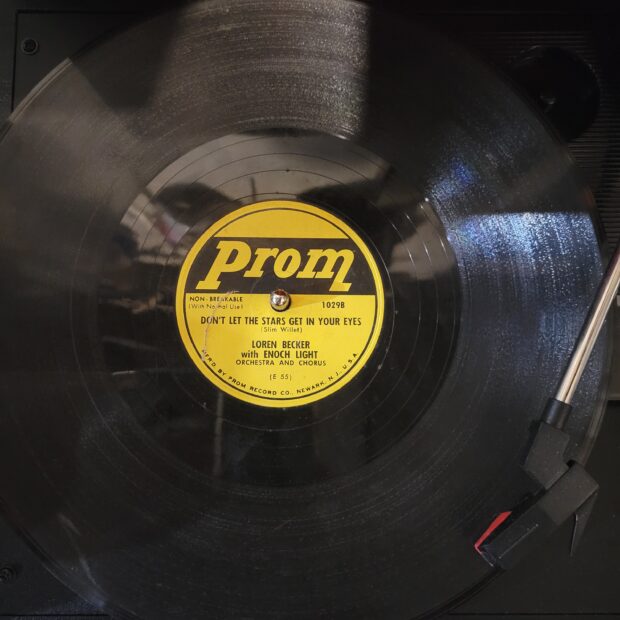Prom Records has a distinct place in the history of music recording, particularly for its approach to producing cover versions of popular songs. Established in Newark, New Jersey, Prom was not just a record label but also a company under the larger umbrella of the Synthetic Plastics Company (SPC). SPC, formed by Daniel Kasen in the late 1920s, was initially a plastic manufacturer for the garments and toy industries. However, after World War II, in 1949, Daniel and his brother Louis Kasen founded Peter Pan Records and operated several subsidiary music labels including Prom.

Prom Records was known for recording their own studio musicians and contracted talents to create cover versions of the hits of the day. The label was affiliated with Waldorf Music Hall and evolved into Grand Award, with its sister label Command Records becoming a favorite among stereo collectors.
Around 1959, the Synthetic Plastics Co. resurrected the Prom label and released what is known as the 100 series. These records featured various artists, including the Prom Orchestra and Chorus, who performed on several albums titled “Hits A Poppin'” and “Top Hits,” released in LP formats, predominantly mono, around 1960. The records were produced under the Prom label as well as other subsidiaries owned by the Kasen brothers.
Notably, the Prom label’s parent company, Synthetic Plastics Sales Corp, also produced the Peter Pan record label, which suggests that the company had a significant presence in the music industry, leveraging its expertise in plastics to manufacture records. The releases under the Prom label, such as “Untitled” compilations, “Hits A Poppin’,” and various other albums, catered to a market that sought accessible versions of popular tunes.
These records, like the “Memories Are Made of This” compilation, featured multiple songs and were indicative of the era’s music scene, capturing the essence of popular music for listeners who were perhaps looking for more affordable versions of hit songs.
In essence, Prom Records was not just a record label but a significant player in the post-war music scene, offering an alternative to the mainstream record industry by producing cover versions of popular music, which was in line with the parent company’s motto, “Fine records need not be expensive”.
